AI & Data Governance: Power with Responsibility - AI Security Risk Assessment - ISO 42001 AI Governance
In today's digital economy, data is the foundation of innovation, and AI is the engine driving transformation. But without proper data
governance, both can become liabilities. Security risks, ethical pitfalls, and regulatory violations can threaten your growth and reputation. Developers must implement strict controls over what data
is collected, stored, and processed, often requiring Data Protection Impact Assessment.
With AIMS (Artificial Intelligence Management System) & Data Governance, you can unlock the true potential of data and AI,
steering your organization towards success while navigating the complexities of power with responsibility.
Trust Is Built Through Governance
AI and Data Governance isn’t just about compliance — it’s about trust. When your systems are well-governed, customers feel safer,
stakeholders gain confidence, and your business operates with clarity and integrity. Governance is what turns data and AI into a reliable engine for sustainable success.
Embrace AI and Data Governance, where trust is the
currency, and governance is the key that unlocks sustainable success built on integrity and transparency.
Why Data Governance Matters
Your data is a strategic asset. Without clear rules and oversight, it can lead to costly mistakes and non-compliance. Strong Data
Governance ensures accuracy, privacy, and secure access across your organization — minimizing risk and enabling smarter decisions at every level.
Unleash the true potential of your data assets with robust
Data Governance, where accuracy, privacy, and security pave the way for intelligent decision-making and risk-free growth
Our Approach to Data Governance
At DISC InfoSec Group, we help businesses build robust Data Governance frameworks. From defining policies for data
collection and classification to ensuring compliance with ISO 27001, ISO 27701, ISO 42001, GDPR, HIPAA, and CCPA, we work with your teams to safeguard your data — and your future.
Trust DISC InfoSec Group to be your guardian of data
governance, where industry-leading expertise, unwavering compliance, and future-proof frameworks converge to secure your digital assets and pave the way for boundless
growth.
Managing AI Responsibly
AI is changing how organizations operate — but it also introduces new risks. Bias, opacity, and misuse can all undermine its value. AI
Governance ensures your AI systems are fair, explainable, and aligned with your core values and legal responsibilities.
Embrace the power of AI with confidence by implementing
robust AI Governance, where fairness, transparency, and ethical alignment converge to unleash innovation without compromising integrity or exposing your organization to
risks.
DISC LLC Solutions for AI Governance
Our services include ethical AI guidelines, bias monitoring, performance audits, and more — ensuring your AI remains a force for good, not
risk. DISC InfoSec provides specialized virtual Chief AI Officer (vCAIO) services and information security consulting to
organizations navigating the evolving landscape of AI governance, cybersecurity frameworks, and regulatory compliance. We bridge the gap between traditional compliance frameworks and emerging AI
governance requirements.
Unlock the transformative potential of AI while navigating
its complexities with DISC's LLC solutions for AI Governance – your trusted partner in harnessing the power of artificial intelligence responsibly, ethically, and without
compromise.
Ready to Build a Smarter, Safer Future?
When Data Governance and AI Governance work together, your business becomes more agile, compliant, and trusted. Deura
InfoSec Group is here to help you lead with confidence.
Schedule a consultation today — and let’s build the future on a foundation of trust.
The Strategic Synergy: ISO 27001 and ISO 42001 – A New Era in
Governance
ISO/IEC 27001 and ISO/IEC 42001, both standards address risk and management systems, but with
different focuses. ISO/IEC 27001 is centered on information security—protecting data confidentiality, integrity, and availability—while ISO/IEC 42001 is the first standard designed specifically for managing artificial intelligence systems responsibly. ISO/IEC 42001 includes considerations like AI-specific risks,
ethical concerns, transparency, and human oversight, which are not fully addressed in ISO 27001. Organizations working with AI should not rely solely on traditional information security
controls.
While ISO/IEC 27001 remains critical for securing data, ISO/IEC 42001 complements it by addressing broader governance and accountability
issues unique to AI. The article suggests that companies developing or deploying AI should integrate both standards to build trust and meet growing stakeholder and regulatory expectations. Applying
ISO 42001 can help demonstrate responsible AI practices, ensure explainability, and mitigate unintended consequences, positioning organizations to lead in a more regulated AI
landscape.
We've integrated AWS Bedrock, OCR systems, and AI chat into a regulated environment. We know what actually works. One expert across AI
governance, InfoSec, and regulatory compliance. No coordination overhead, no conflicting advice.
Want to learn more about managing AI responsibly? Visit the DISC InfoSec blog for expert posts on AI compliance and governance.
AIMS and Data
Governace
Responsibility and Disruption must
coexist. Implementing
BS
hashtag#ISO42001
will demonstrate that you're developing
hashtag#AI
responsibly. Information Technology and Artificial Intelligence Management
System
You can’t have AI without an IA
A clever way to emphasize that Information Architecture (IA) is foundational to effective
Artificial Intelligence (AI). AI systems rely on well-organized, high-quality, and accessible data to function properly. Without strong IA—clear data structures,
taxonomies, metadata, and governance—AI can produce biased, unreliable, or even harmful results--In short: AI is only as good as the information it learns from—and
that's where IA comes in.
Specific users of BS ISO/IEC 42001 will likely be:
AI consultants
AI policy staff
senior staff looking to input/adapt AI into their business
AI solution and service providers, which could span across machine learning, NLP/natural language processing, computer vision
AI researchers
AI standards developers
user of management system standards
C-level management.
What does BS ISO/IEC 42001 - Artificial intelligence management system cover?
BS ISO/IEC 42001:2023 specifies requirements and provides guidance for establishing, implementing, maintaining and continually improving an
AI management system within the context of an organization.
The AI Readiness Gap: High Usage, Low Security - Databricks AI Security Framework (DASF) and the AI Controls Matrix
(AICM) from CSA can both be
used effectively for AI security readiness assessments
AI Governance Readiness
Assessment - AI Security Risk Assessment (EU AI Act)
Is Your Business Ready
for the Risks of AI?
A 10-day
fixed-fee service to assess your AI compliance, risk posture, and governance readiness.
Best
Practices:
- Conduct purpose assessments before data
collection
- Use synthetic or anonymized data where
possible
- Implement access controls and
retention limits
- Regularly audit data pipelines for
compliance
Stay ahead of the curve. For practical insights, proven strategies, and tools to strengthen
your AI governance and continuous improvement efforts, check out our latest blog posts on AI, AI Governance, and AI Governance
tools.
You don’t always need to hire a full-time CAIO — what you really need is AI Governance Leadership. In my latest post, I explain how businesses can build robust AI
oversight without expanding headcount. If you care about responsible AI deployment, compliance, and strategic governance, this one’s for you.
AI systems should be developed using data sets that meet certain quality
standards
Data Governance
AI systems, especially high-risk ones, must rely on well-managed data throughout training, validation, and testing. This involves designing systems thoughtfully, knowing the source and purpose of
collected data (especially personal data), properly processing data through labeling and cleaning, and verifying assumptions about what the data represents. It also requires ensuring there is enough
high-quality data available, addressing harmful biases, and fixing any data issues that could hinder compliance with legal or ethical standards.
Quality of Data Sets
The data sets used must accurately reflect the intended purpose of the AI system. They should be reliable, representative of the target population, statistically sound, and complete to ensure that
outputs are both valid and trustworthy.
Consideration of Context
AI developers must ensure data reflects the real-world environment where the system will be deployed. Context-specific features or variations should be factored in to avoid mismatches between test
conditions and real-world performance.
Special Data Handling
In rare cases, sensitive personal data may be used to identify and mitigate biases. However, this is only acceptable if no other alternative exists. When used, strict security and privacy safeguards
must be applied, including controlled access, thorough documentation, prohibition of sharing, and mandatory deletion once the data is no longer needed. Justification for such use must always be
recorded.
Non-Training AI Systems
For AI systems that do not rely on training data, the requirements concerning data quality and handling mainly apply to testing data. This ensures that even rule-based or symbolic AI models are
evaluated using appropriate and reliable test sets.
Organizations building or deploying AI should treat data management as a cornerstone of trustworthy AI. Strong governance
frameworks, bias monitoring, and contextual awareness ensure systems are fair, reliable, and compliant. For most companies, aligning with standards like ISO/IEC 42001 (AI management) and ISO/IEC
27001 (security) can help establish structured practices. My recommendation: develop a data governance playbook early, incorporate bias detection and context validation into the AI lifecycle, and
document every decision for accountability. This not only ensures regulatory compliance but also builds user trust.
ISO 42001-2023 Control Gap Assessment
Unlock the competitive edge with our ISO 42001:2023 Control Gap Assessment — the fastest way to measure your
organization’s readiness for responsible AI. This assessment identifies gaps between your current practices and the world’s first international AI governance standard, giving you a clear roadmap to
compliance, risk reduction, and ethical AI adoption.
By uncovering hidden risks such as bias, lack of transparency, or weak oversight, our gap assessment helps you
strengthen trust, meet regulatory expectations, and accelerate safe AI deployment. The outcome: a tailored action plan that not only protects your business from costly mistakes but
also positions you as a leader in responsible innovation. With DISC InfoSec Group, you don’t just check a box — you gain a strategic advantage built on integrity, compliance, and future-proof
AI governance.
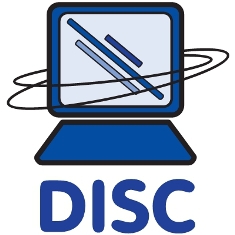
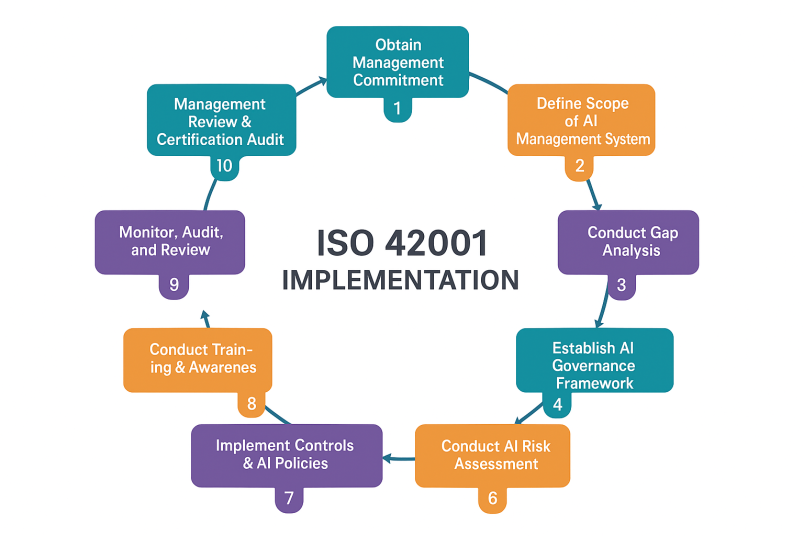
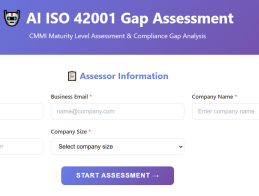

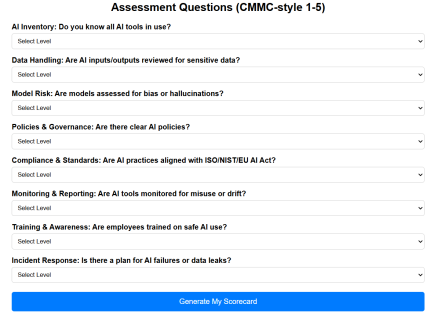

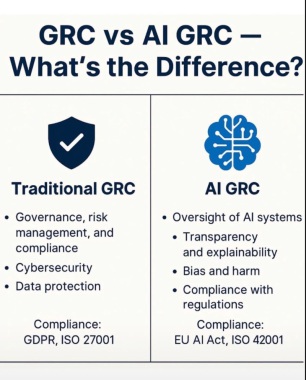

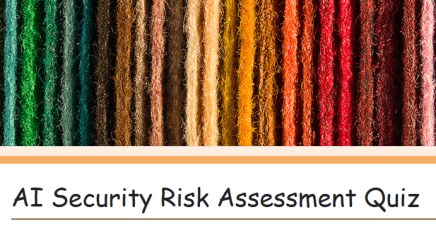
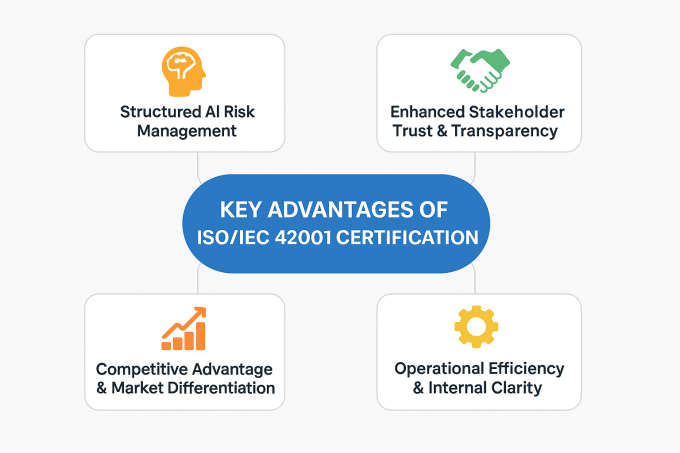
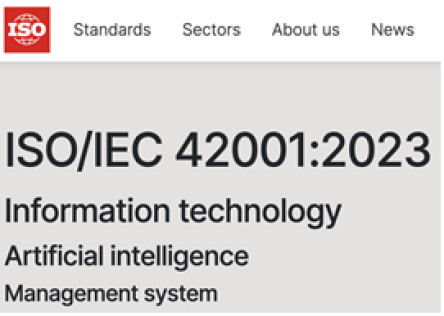
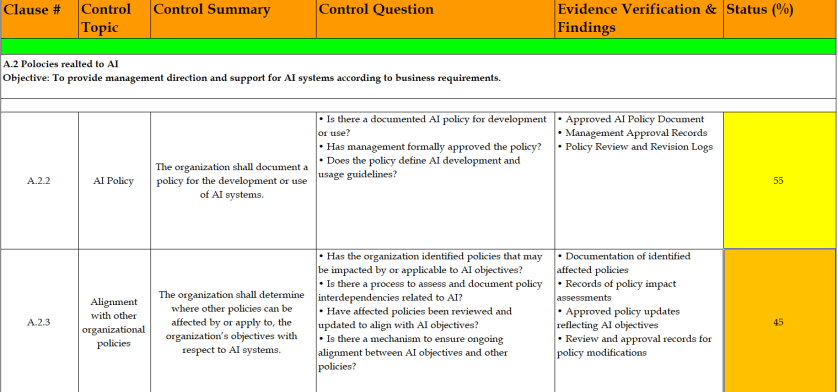

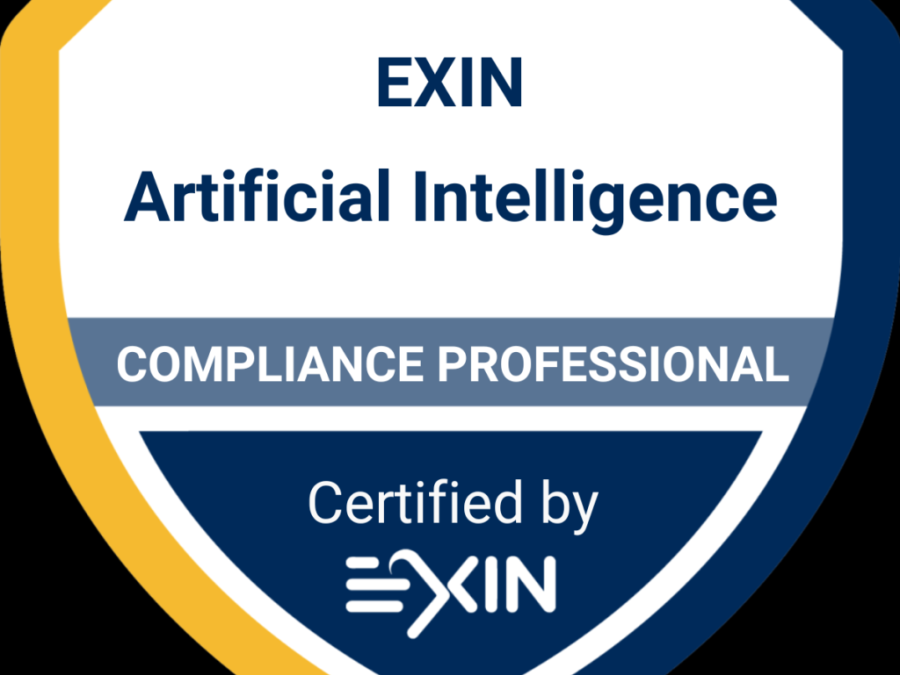
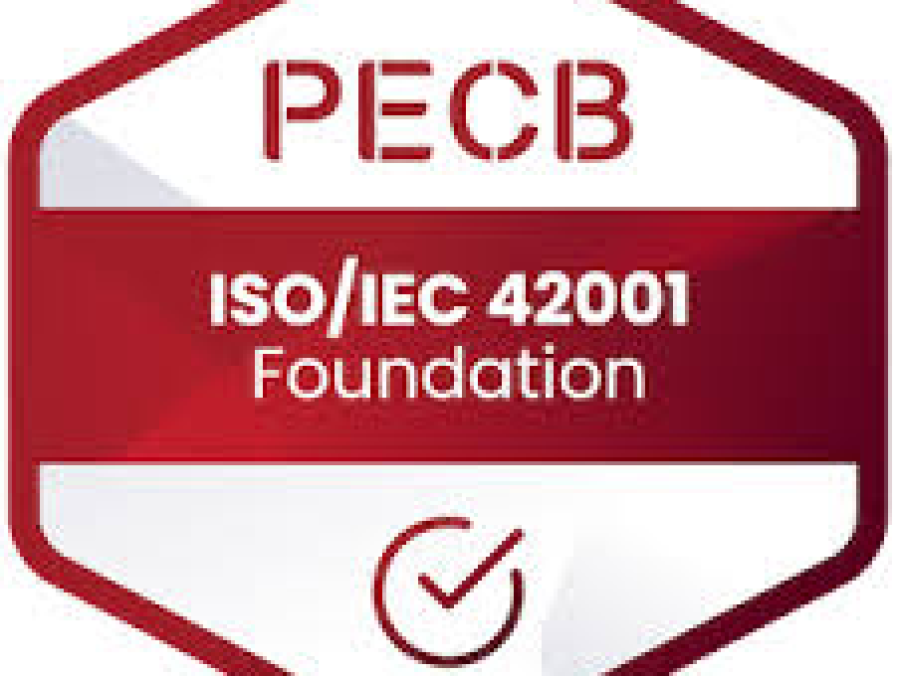
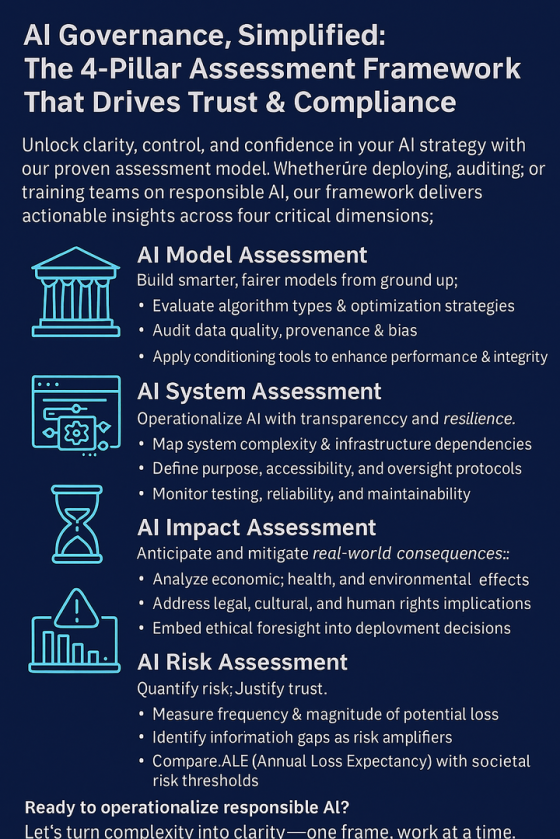
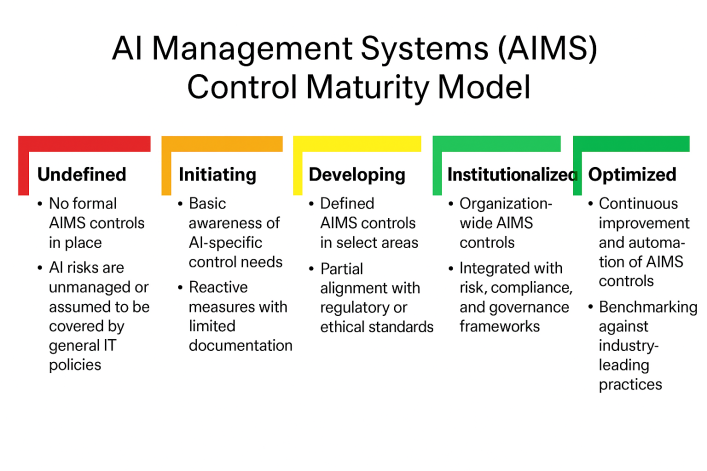
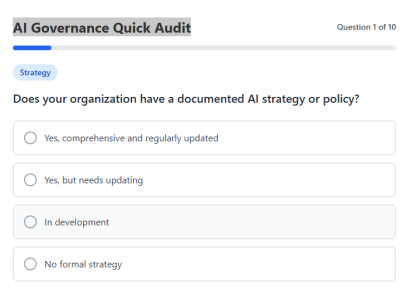
 10
comprehensive AI governance questions
10
comprehensive AI governance questions  below
to open an AI Governance Quick Audit in your browser or click the image on the left side.
below
to open an AI Governance Quick Audit in your browser or click the image on the left side.